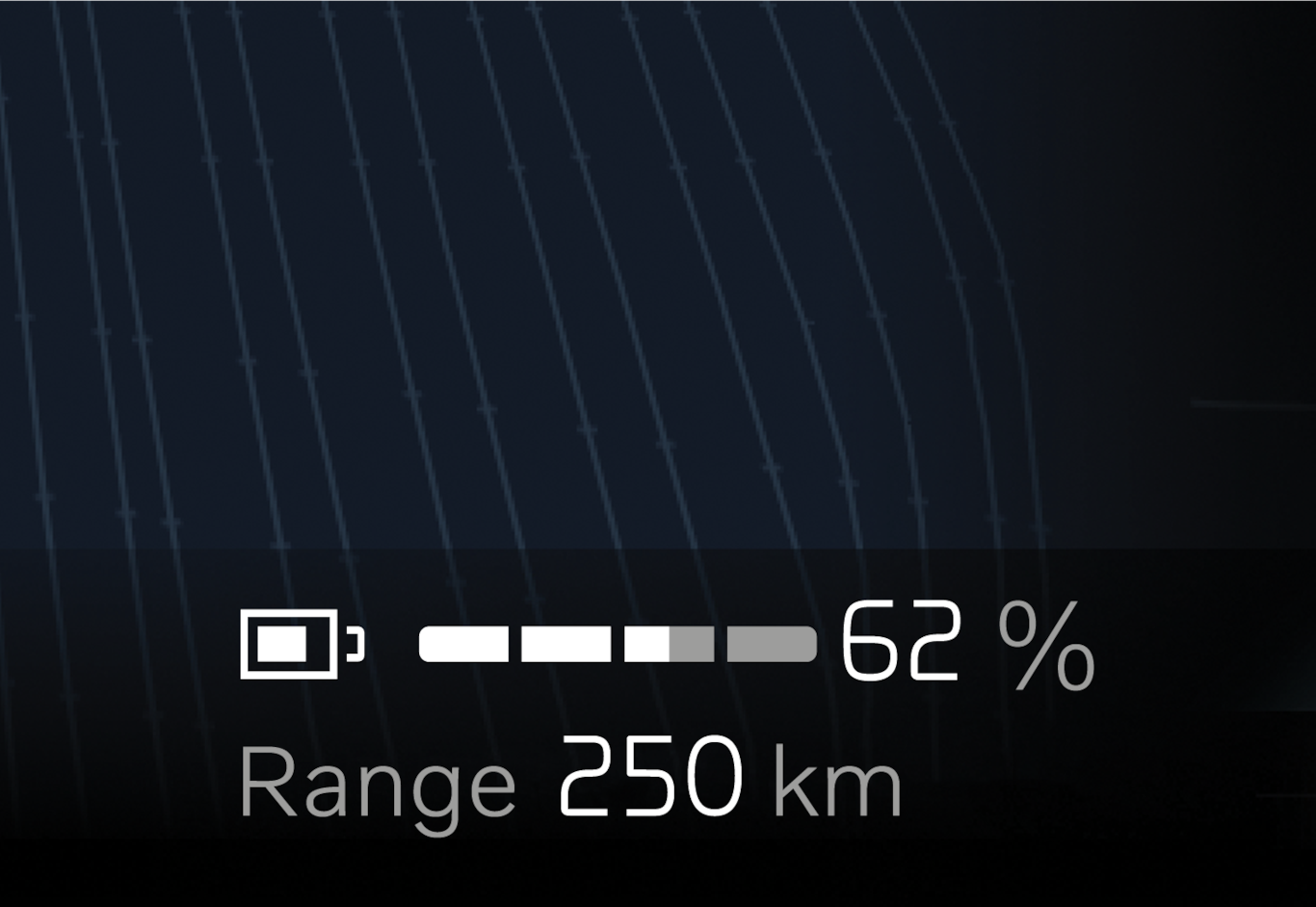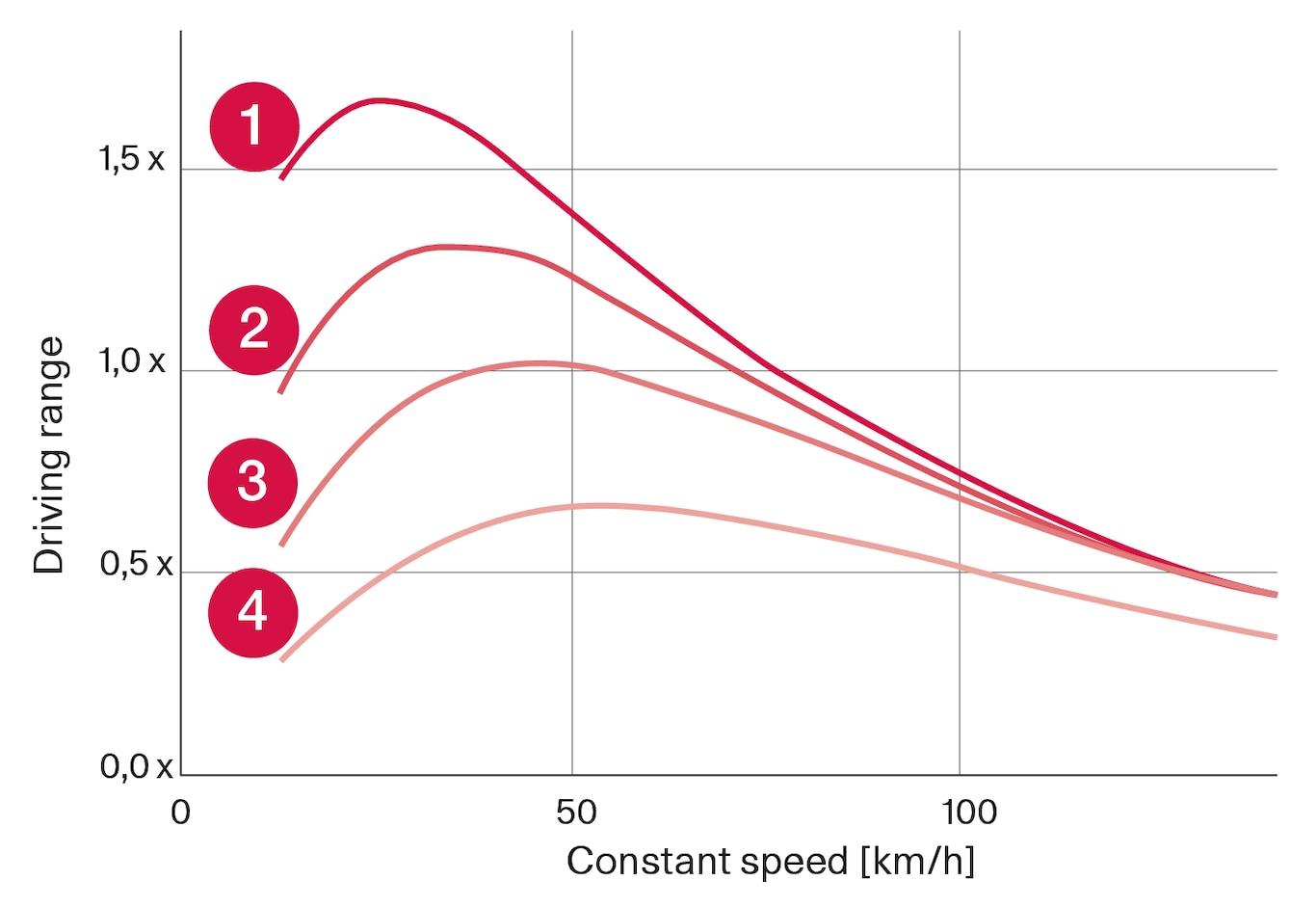The certified value for the car's mileage should not be interpreted as an expected range. The certified value should primarily be used to compare different cars and is obtained during special test cycles.
Note
Range in the driver display

When the car is delivered from the factory, the range is based on the certified value. When the car has been driven for a while, the range is based on historical driving patterns.
The amount of history used depends on the battery's state of charge. Therefore, the less charge there is in the battery, the faster the range adapts to a changed driving pattern.
Short range
The estimated range of the car is shorter when the battery's state of charge (SoC) decreases. The driver display shows a number of symbols and messages as the range becomes shorter.
| Symbol | Message/meaning |
|---|---|
 | When the range of the car falls to 50 km, the battery symbol next to the battery gauge changes colour to orange and the message Low rangeDo you want to find a charging station? is shown in the driver display. The message is not shown if a destination is set in the navigation system. |
 | When the range of the car falls to 20 km, the battery symbol next to the battery gauge changes colour to red and the message Low rangeDo you want to find a charging station? is shown in the driver display. |
 | When the battery level is low, an orange tortoise is shown in the upper part of the driver display. |
 | The message Reduced power due to low battery charge is shown together with an orange battery symbol. If the tortoise was not shown earlier, it will be visible in the driver display in connection with this message being shown. |
 | The message Empty battery. Charge battery. is shown together with an empty battery symbol. |
Factors that affect the range
In addition to historical trip data, there are several different factors that affect the range. The longest range is achieved under extremely favourable conditions when all factors have a positive impact.
Examples of factors that affect the range:
- speed
- climate settings
- topography
- preconditioning
- tyres and tyre pressure
- traffic situation
- temperature and weather
- road conditions.
Range in cold temperatures

In cold ambient temperatures there is a risk that the battery will become too cold, which has a negative effect on the range. This symbol is shown in the driver display if the battery temperature falls to a critically low level. If the car is parked in cold ambient temperatures there is a risk that the range will be reduced dramatically. To avoid substantially reduced range after parking in cold ambient temperatures, the car should be charged while it is parked.
Range based on speed and outside temperature

 20 °C (68 °F) outside temperature and passenger compartment climate Off.
20 °C (68 °F) outside temperature and passenger compartment climate Off. 20 °C (68 °F) outside temperature and passenger compartment climate On.
20 °C (68 °F) outside temperature and passenger compartment climate On. 35 °C (95 °F) outside temperature and passenger compartment climate On.
35 °C (95 °F) outside temperature and passenger compartment climate On. -10 °C (14 °F) outside temperature and passenger compartment climate On.
-10 °C (14 °F) outside temperature and passenger compartment climate On.
The diagram shows the approximate relationship between constant speed and range.
The graph shows that a lower speed gives a longer range. The outside temperature also affects the range, so that very cold or very hot ambient temperatures result in a shorter range.
Lines 1 and 2 show the approximate difference in range affected by the climate functions. Turning off the climate control is more beneficial for range.